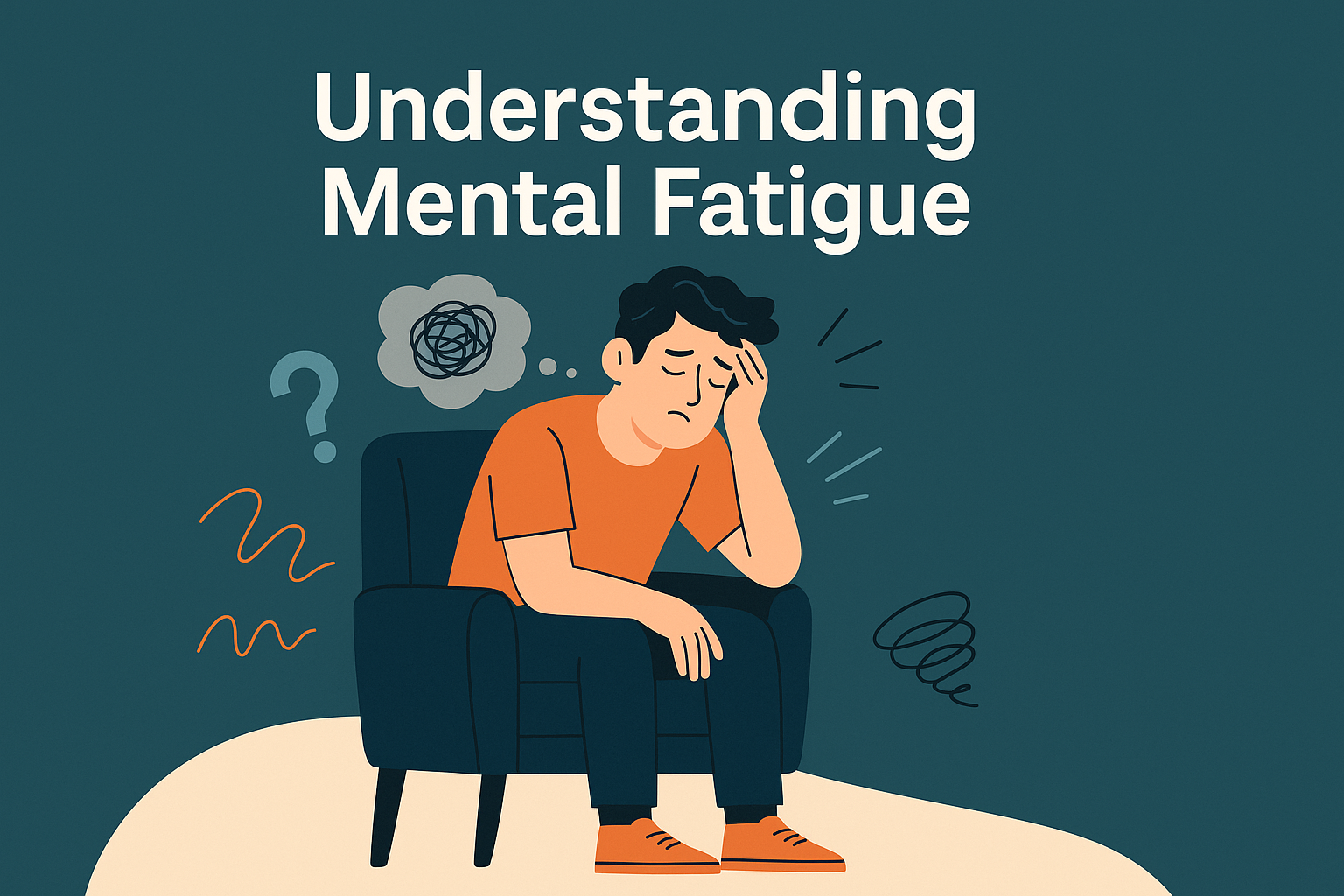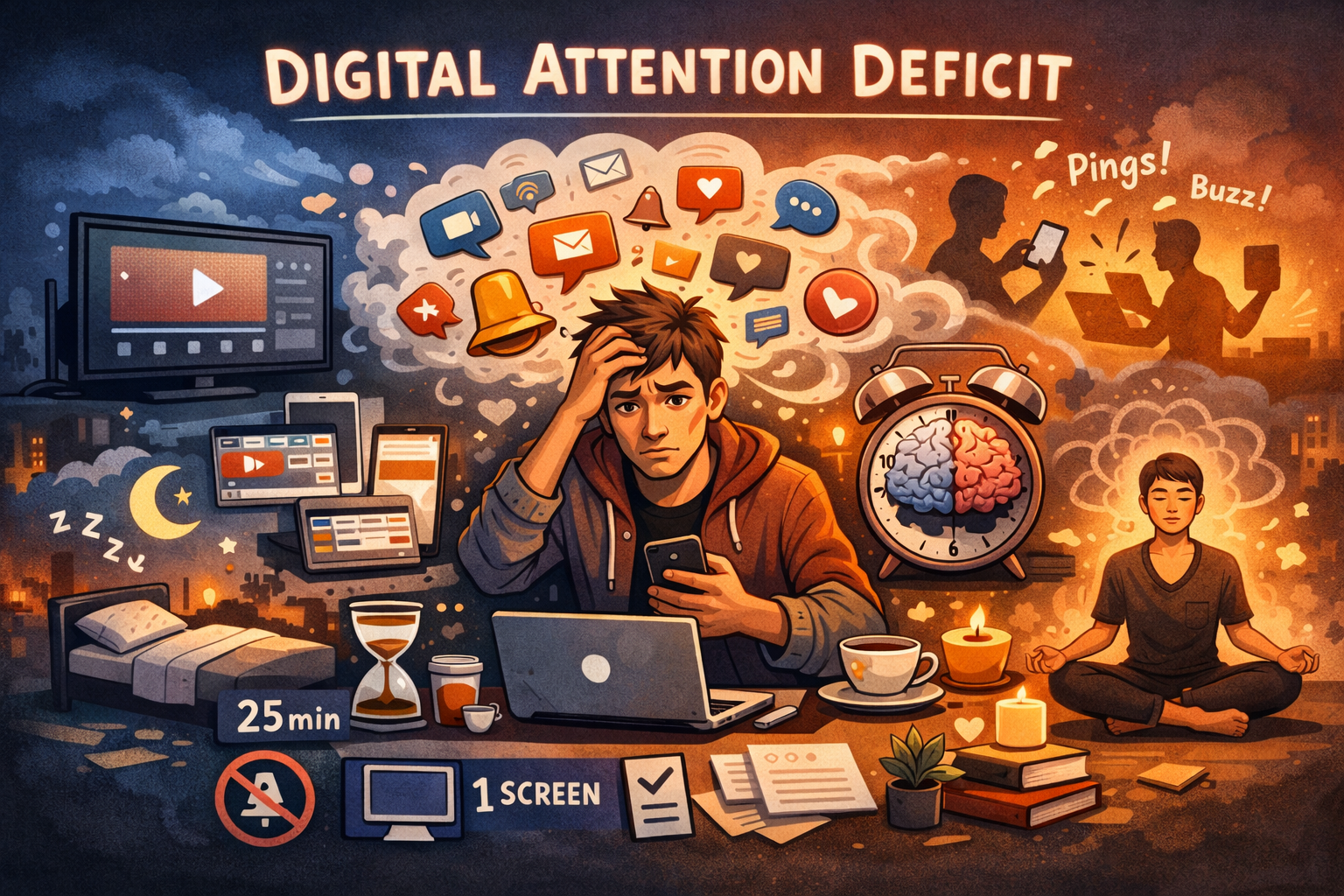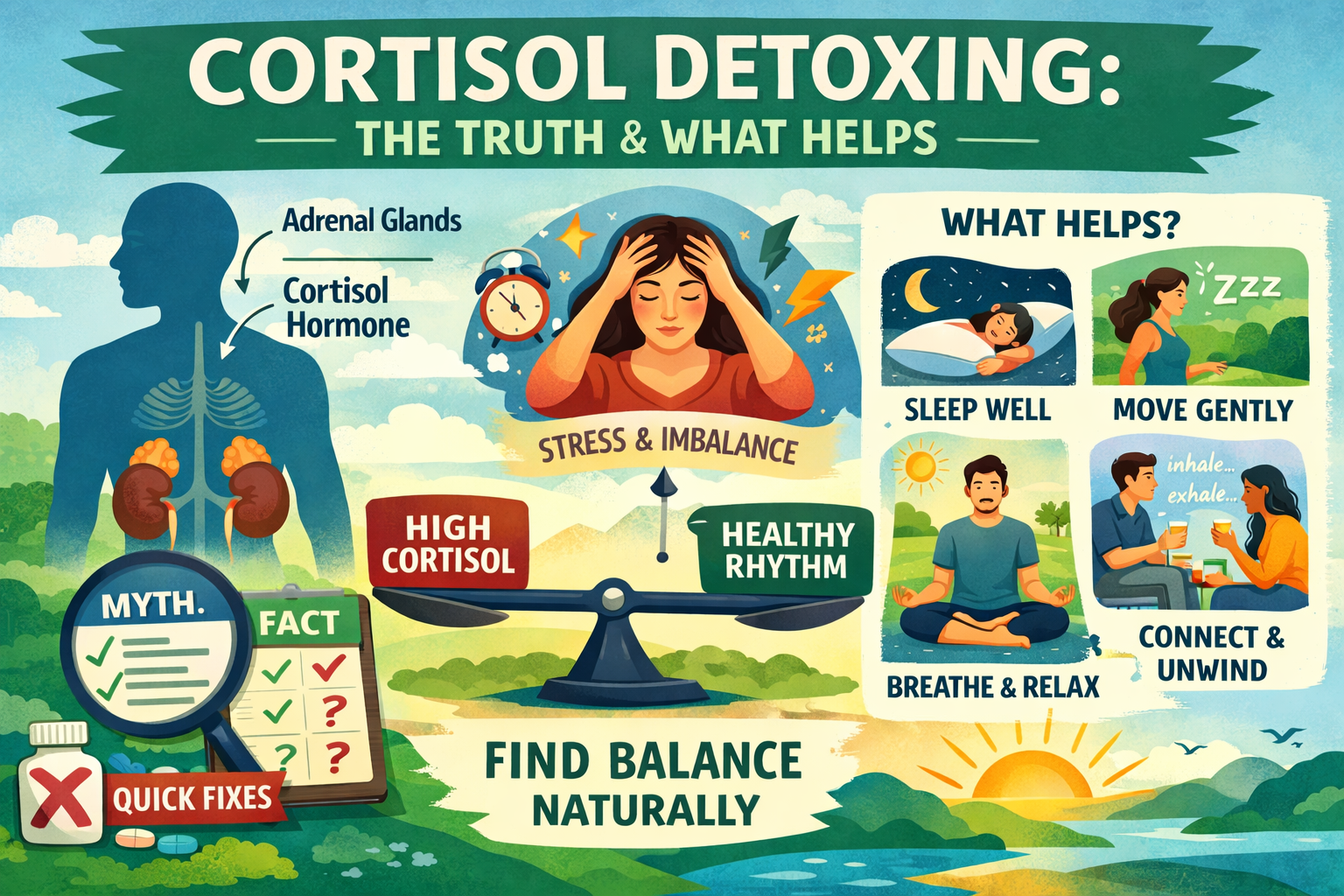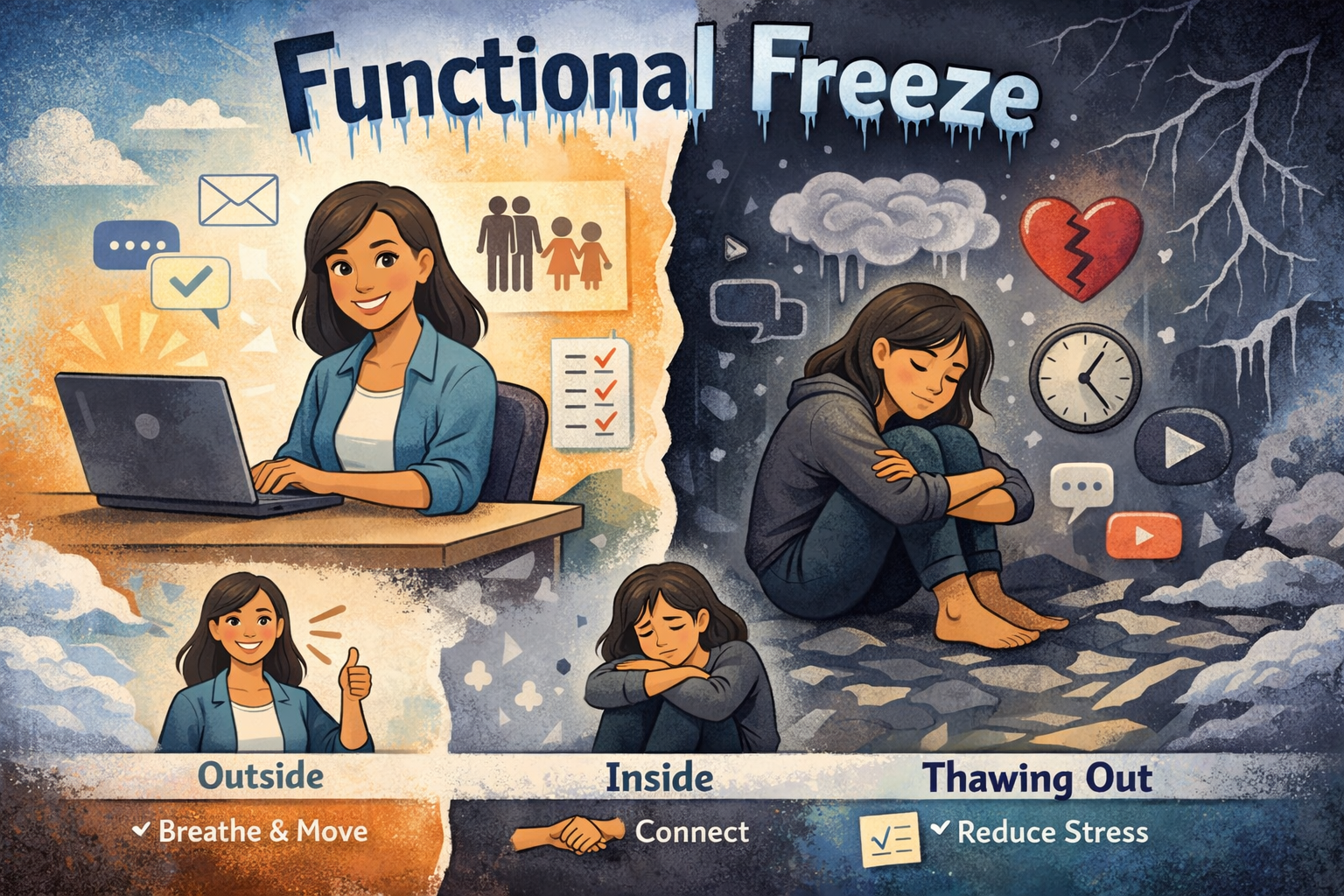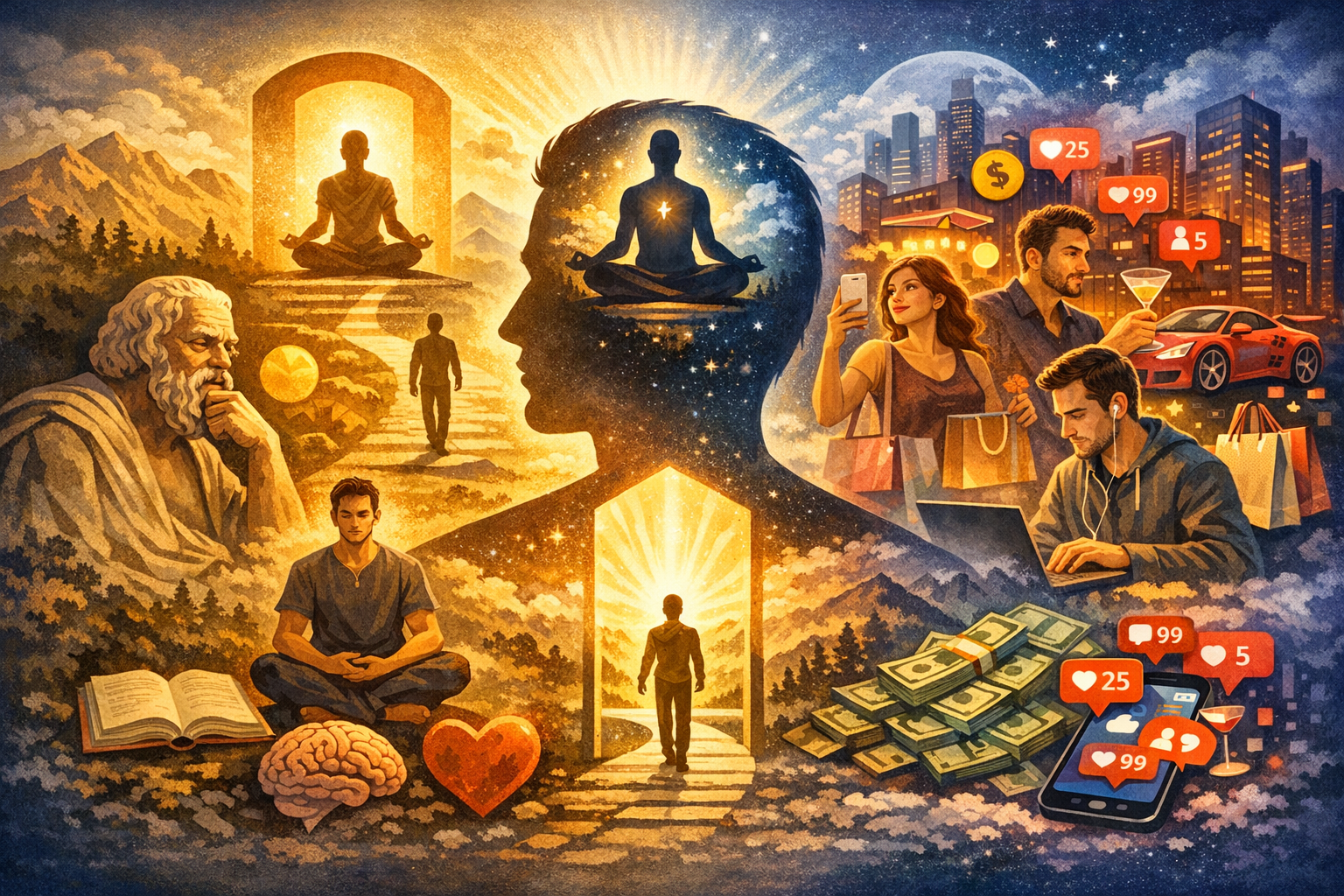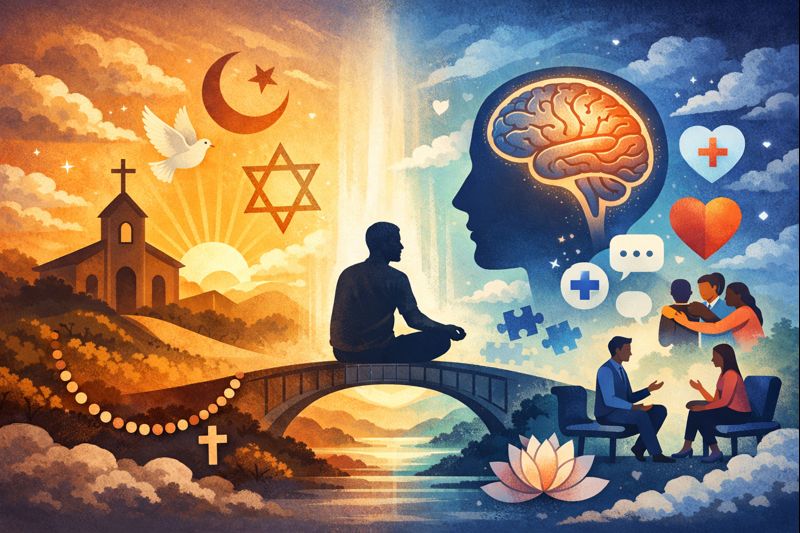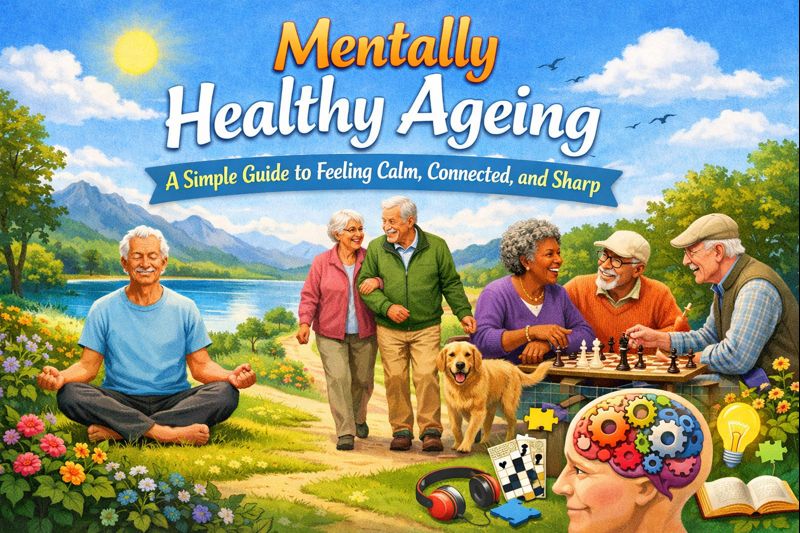When we have mental fatigue even after doing nothing or after performing tasks that require no
physical activity, we may wonder why we feel mentally exhausted. The modern world experiences this
widespread issue of mental fatigue or emotional burnout which stems from factors beyond stress
alone. This article will examine mental fatigue causes alongside expert insights and present proven
techniques to regain mental energy.
What Is Mental Fatigue?
Mental fatigue is the state where our brain experiences foggy, slow, or unmotivated... Our mind
experience cognitive fatigue when we feel mentally tired yet remain physically refreshed. Our mental
fatigue affects both our ability to focus and emotional control as well as our cognitive processing ability.
The human brain, like physical body, also require relaxation or even though the body remains in a
healthy state according to psychologist Dr. Lisa Damour author of ‘Under Pressure’.
“Cognitive fatigue is the brain’s way of saying ‘I need a break,’ even when our bodies feel fine,” says Dr. Lisa Damour, psychologist, and author of Under Pressure. “We often mistake passive scrolling or watching videos as rest—but it’s still stimulation.”
Why we get mentally exhausted without doing anything?
The world is amid digital revolution which is causing major upheaval in the humanity. We have
gradually and increasingly become hyper-connected, overloaded with information, and overstimulated
with the content we experience. We are bombarded with pleasurable and interesting material which we
do not like to miss. As a result, we tend to get digitally addicted.
Even when we are resting and sitting comfortably and relaxed, we are busy watching social media,
WhatsApp and other platforms. Often people watch mobile before going to sleep, though it’s not
advisable. Therefore, our brain gets fatigued with processing information for long hours. On an
average, we watch digital content for nearly 6–7 hours during waking hours in a day. Our lives are
deeply intermingled with ‘virtual world’.
1. Information Overload
As per a study, our daily content consumption reaches an average of 34 gigabytes for every person.
The daily reading exceeds 100,000 words. Dr. Daniel Levitin, a neuroscientist and author of The
Organized Mind explains” the human brain developed to handle one mental task at a time. Information
overload drains the mental resources which are essential for making choices and managing emotions.”
2. Digital Emotional Burnout
Our mental fatigue increases as we continue to scroll through digital content. This happens because
digital content regularly evokes emotional responses in us that include comparison anxiety, jealousy,
anger, fear of missing out (FOMO). The passive consumption of emotionally charged content activates
stress responses at the same level as working throughout the day, according to Dr. Jenny Taitz, a
clinical psychologist and author of End Emotional Eating.
3. Constant Micro-Decisions
The accumulation of numerous small and petty choices we make during the day, such as what to eat,
wear, purchase and so on result in ‘decision fatigue’ according to psychologists. The process of
decision-making requires energy expenditure and this process adds up fast.
The following indicators suggest we are experiencing more and more mental fatigue or cognitive
exhaustion with the passage of time. Although our schedule appears empty in our mind but it could be
operating without sufficient mental energy. We need to look out for:
• Brain fog or forgetfulness
• Lack of motivation or creativity
• Irritability and mood swings
• Difficulty in focusing on simple tasks
• Physical symptoms like eye strain or headaches
When we experience these symptoms, our brain might be silently undergoing mental exhaustion.
5 Ways to Truly Rest and Recharge Your Mind
1. Give Your Brain “Deep Relaxation”
We cannot relax, in real sense, while scrolling our mobiles mindlessly or watching TV in the
background. The brain requires a total pause to rest. We need to try the following:
• Sit in silence, enjoy solitude
• Meditate for some time preferably 10 minutes
• Sit or lie down with no distractions
• Take a mindful nap during the day
Dr. Andrew Weil, a leading figure in integrative medicine reveals that deliberate mental rest of only
twenty minutes decreases cortisol levels (stress hormone) and enhances mental clarity.
2. Unplug with Purpose
The earmarking of screen-free areas including no screen usage during meals and thirty minutes of
screen-free time before bedtime. Digital wellbeing tools which include screen time trackers and app
blockers should be used to help people decrease their digital stimulation levels.
3. Practice ‘One Task at a Time’ – Monotasking
The practice of multitasking accelerates the depletion of mental energy. One task at a time should be
your focus when eating or writing or listening. Single-tasking strengthens mental concentration
together with mental power.
4. Reconnect Emotionally Offline
The experience of digital connection fails to deliver the same emotional connection as face-to-face
interactions. Devote your time to interact with people directly or use phone calls to have meaningful
dialogues. The process of social bonding creates oxytocin that calms down the nervous system.
5. Mindful Practices Help Reset the Mind
The brain enters a relaxed state through performing regular activities like journaling and mindful
breathing as well as practicing guided meditation. Such kinds of platforms are available online in
plenty.
If you want to try a basic technique you should check out our Mindful Breathing Guide which can begin your practice today.
Final Thoughts: You’re Not Lazy, You’re Overstimulated
Mental fatigue after doing nothing should not be mistaken for physical weakness or lack of motivation
since it often represents overstimulation combined with emotional exhaustion and digital burnout.
Dr. Damour rightly points out that the human mind operates beyond its intended capacity for
continuous data consumption. Our ability to regain clarity, calmness and joy emerges when we listen to
our mind's signals and establish digital limits.
Take Action: Prioritize your mental wellness
• Step away from screens for 10 minutes right now
• Breathe deeply and stretch your body
• Try a digital detox day once a week
Are you looking for inner peace, deep relaxation or holistic solutions for mental health? Visit http://themindtherapy.in - your space for online counselling/therapy, free mental health tests, meditation, sound therapy etc.
Mind Therapy is India's trusted platform for mental health, mindfulness, and holistic healing. Explore expert-led programs, guided meditation, sound therapy and counselling at http://themindtherapy.in


